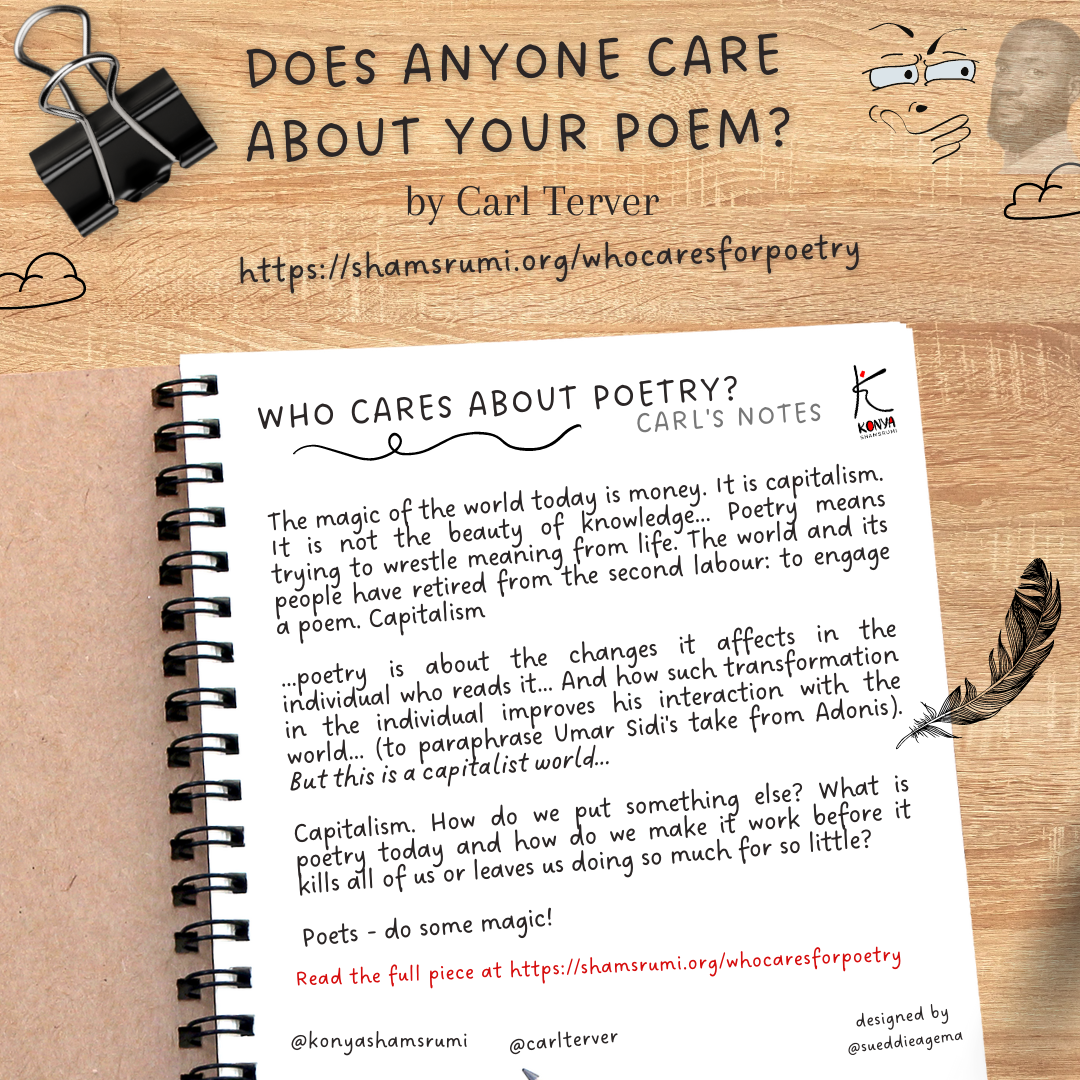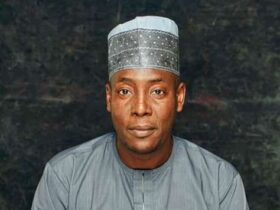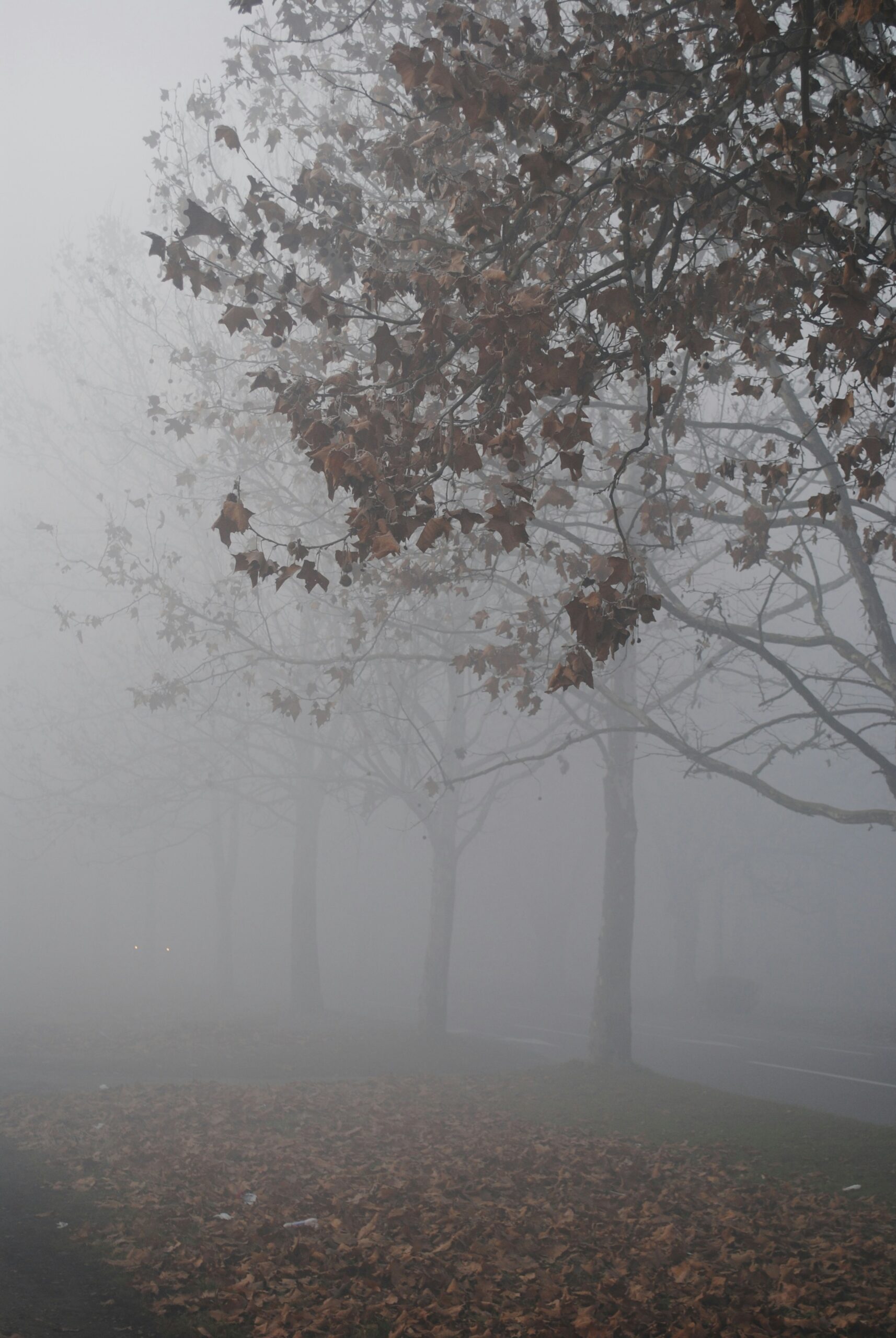Most people who bother with the matter at all would admit that the English language is in a bad way, but it is generally assumed that we cannot by conscious action do anything about it. Our civilisation is decadent, and our language—so the argument runs—must inevitably share in the general collapse. It follows that any struggle against the abuse of language is a sentimental archaism, like preferring candles to electric light or hansom cabs to aeroplanes. Underneath this lies the half-conscious belief that language is a natural growth and not an instrument which we shape for our own purposes. Now, it is clear that the decline of a language must ultimately have political and economic causes […] the slovenliness of our language makes it easier for us to have foolish thoughts.
—George Orwell, “Politics and the English Language” (1946)
It is not so far into the distant future. Miners are working. They find a strange mineral. When word gets back from the laboratories about this strange mineral, it is found to be called poetrium. But it is concluded to be a rather accidental find with no real use or value. In another instance, and perhaps you have seen the movie, too: a speculative movie about a thought experiment to prepare humans for a nuclear fallout. There are bunkers all over the world to preserve the next humans who will continue our species. Candidates stand on a soapbox to explain why they should be let into the bunker. When it’s a poet’s turn, he’s shot in the forehead, stopped in the middle of his introduction, “I am a poe—.” His effrontery! Who needs a poet instead of geologists or astronauts who can find new planets somewhere far in the stars to live on when our nuked planet is inhabitable? Aha!—the irony, yea? This seems to be projected to a time other than now, howbeit, the fears are present and imminent: does anyone care about your poem? Or poetry? Let’s not deceive ourselves. Really? Does anyone care?
At his book reading at Adams Pages in Wuse II, Abuja, on the last day of December last year, the moderator Salamatu Sule, perhaps befuddled by Umar Abubakar Sidi’s outlier poetry persuasion, or about poetry generally, asked the poet what he thinks is poetry’s use to society. He gave an answer I believe is not too far from home, reflecting on the words of his teacher, the poet Adonis, that poetry is about the changes it affects in the individual who reads it. Of becoming a more sensitive human, learning empathy, how it penetrates one’s understanding of the human condition. And how such transformation in the individual improves his interaction with the world.
Does this mean poetry shares a place with religion, since this is what the latter attempts, after all? And thus, isn’t it true that today the world has lost the patience for such philosophical exercise, distracted by many things, ultimately, the mass media? Who pauses to reflect? Who prays for others, if not themselves? Who wakes up thinking: yams do not sprout in amulets to earth abiku’s limbs? Who thinks about how the clock works—if there are any among us today, where have they gone? The quiet vigilance of its tick-tock sound, once a cautious reminder to us as people who consciously exist. Not even science has the appeal of wonder it once had. We are familiar with progress so much that we have lost touch with magic. Magic. That is the word. My lecturer spoke of poetry being for initiates who fall under the spell of language.
The magic of the world today is money. It is capitalism. It is not the beauty of knowledge. It is not love. Poets, at the fringes of such a world, try to claw their way through the herd to become visible; shout about language, but are drowned by the daily innovations that provide our leisures. So they turn to themselves for solace, playing witnesses to each other to a world that goes by without them, powerless to change it but, nonetheless, as American critic Adam Kirsch has said, “sworn at least to tell the truth about it.”
This telling of truth is whose job? Is that what we are doing? When mostly, only poets read poets, what is the use of truth? The conflict of it. The last poetry workshop I gave was on a university campus, and I titled it The Meaninglessness of Poetry to provoke the participants who were largely members of the university’s writers club, often victims of having taken that pill of I-am-a-poet that fuels certain fantasies. But the idea was to try to make them convince me why poetry isn’t meaningless, hoping that if they had good answers, they’d understand poetry more and why they have to become poets in the first place. What we were engaging in is what Matthew Arnold called the criticism of life, which he said poetry is—a sort of high seriousness.
For me, and more presently today, poetry means trying to wrestle meaning from life. It is what I like to call an attempt to redeem us from our hypocrisy. Thus, the more I understand poetry and practice it, the more reflective and contemplative as a human being I must become. But I am also flushed with many distractions that I forget sometimes if I am a poet, if poetry is a living thing or a part of me, or that I even write about it. This is a personal confession: why doesn’t it make any sense to me sometimes? I discover it is because sometimes I tire of the labour of it: to write it—the pulling away from the noise of the world, the prayer with words and the careful, painstaking attention to their semantics; to read it—the pulling away from the noise of the world, and the careful consideration of the poet’s intercessions, their fears, or small joys, and the grace to arrive at interpretation; to write about it—the fear that no one will read what I write about it, or cares, that poetry criticism has no currency. (Connect me to a UI/UX or tech writing gig, please!)
The world and its people have retired from the second labour: to engage a poem. Today, art itself is more visible and responded to in its more visual and kinetic forms, and poetry—which we write in books and expect people (“other poets”) to read—has remained in the cathedral, dotting on its aura. Howbeit, art’s more visual and moveable feast has made performance poetry, judged as a deviation from true poetry by purists, to flourish. It is a small win for poetry. An experience of Dike Chukwumerije’s Made In Nigeria poetry show is immersive, and the Benue Poetry Troupe, which has adapted as a stage performance Denja Abdullahi’s Mairogo, a poetry book, has been involved in staging poems as drama. This aspect of poetry is not novel to us, but default. Our traditional oral poets have practised this way for a long time and have had great following.
Perhaps it is the way we want to keep seeing poetry, revered as the superior genre, that keeps it in a disadvantaged, elevated status. We poets know that poetry cannot be dead, that we haven’t seen the end of it already. We believe, in truth, that it is breathing with us every day, in the wind blowing on our faces, in the music that surrounds us (from hip hop to blues to Afropop, our native drums and flutes), in daily conversations, in the unexpected smile from a stranger, in the beat of traffic, in the sound of the running faucet we forgot to turn off, in loving, in the moans of sex, in mathematics; but wonder why we miss it. We poets believe poetry is the essence of living. Yet it feels as if we are blind to the world moving away, isolating from it, because in the end sometimes, we feel we are alone.
But we understand why. The world needs poetry now, even more than ever, than it runs from it. The world needs to pause from its madness and listen carefully to the heartbeats around it. We know the world is pulling away from this thing it needs most because it is crumbling under the cold, metallic demands of living. Is it possible for poets today to find ways to inject poetry back into the world? Can our poems become staged plays? Can we make it mixed media, of poems and instruments, so that we can host shows? Yes? And like Dana Gioai suggests in “Can Poetry Matter,” we can add other attractions to poetry readings to make them more colourful. Because it is worthy. How lovely would it be if directors begin movies with a poetry quote? What about graffiti? The philistinism of our age must not win.
As I write this, I am not unaware of a kind of underground golden age Nigerian poetry is undergoing. This year, tagged “The Nigerian Year of Poetry” by Su’eddie Vershima Agema, was a wonderful one for it. We are not having conversations about poetry’s death as in the west, who mourn a time the art was magisterial and Romance poets held sway, when people recited from memory Shelley and Wordsworth, Dante or lines from the Iliad. Lucky for us, our poetry is alive, ironically so, since there have been side conversations about the death of Nigerian literature. Apropos of this last concern and the certain decline of poetry’s value or usefulness, admit it or not, is for us to pay attention to how the world itself wages a war on language and how this is a major reason poetry has become poetrium.
No better words come to mind than Ahmed Maiwada writing in Eye Rhymes about poetry’s decline, which is also a criticism of language’s decline: “It used to be a diamond-decked yacht, / Until the high sea pirates rose, / Wrecked and then sank it. / It’s an adjective feast – / Butchers over the fallen masterpiece.” I could go on and make more references on the pristineness of language and why it should be guarded, but Chinua Achebe’s marvelous essay “Language and the Destiny of Man” suffices, where he says, “It has long been known that language, like any other human invention, can be abused, can be turned from its original purpose into something useless or even deadly.” It is not farfetched to say this is happening today, maybe not even by deliberate design, but maybe, why not, by the engines of the habitus. When the lot of us have abandoned language or are robbed of its beauty by the weapons of mass media, TV, average songwriting, journalese, political boilerplate, and many hackneyed forms of speech; not to mention present-day manifestations of newspeak and propaganda, and the many neologisms of the woke and cancel culture brigadiers; where are the ears for poetry, the minds for it, the hearts ready for its labour?
So poets are the last audience who will keep reading poets. I hope that twenty years from now we might look back and find a rich pile of criticism written about the voices of the New School Poets we have flourishing today like the amulets of yams sprouting from virgin soil, criticism as rich and diverse as the works of the poets. Because without this, how will you say there was this poet or that poet without anybody talking or writing about them? This is our present war, to make poetry matter, unless we too have lost the capacity for its labour. It is not so far into the distant future. It is today. Miners are working. They find a strange mineral. What is it?
- Wendy Okeke Portrays Her Humanity in Grief’s First Kiss is an Avalanche - February 28, 2025
- Why We Were Walls and New Openings – A new anthology of art and writing from Creative Writers’ Club, ABU Zaria - June 1, 2024
- Register for an engaging 10-day workshop on essay writing with Carl Terver - March 4, 2024













I have been a fan of Carl Terver’s writing style for a while now and this article right here, is beautiful and what we need read. Thank you for reminding us how poetry still sways and holds magic.
🙂
Thank you, Hader. Carl will see this…and I am sure he will appreciate your thoughts. Like I do.